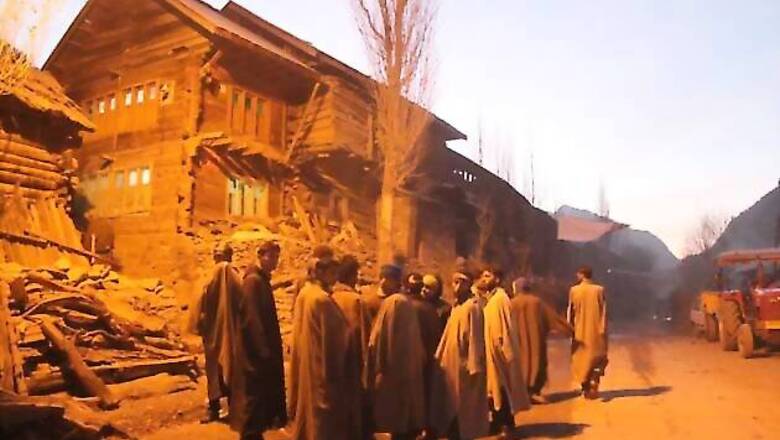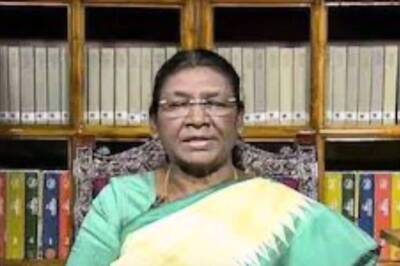
views
Gurez: As India continues to strive for a place in the list of fast developing nations, there are several things which its citizens have come to regards as basic necessities apart from food, shelter and clothing. One of the basic infrastructure requirements for leading a normal life and enjoy the benefits of development is electricity along with good road connectivity.
These become even more important for an area which is right on the volatile India-Pakistan Line of Control in Kashmir and is completely cut off from the rest of India for six months due to heavy snow. But in what may come as a huge shock and surprise to the residents of many states and big cities, Gurez tehsil of Bandipora district of north Kashmir is not even connected to the national power grid even though the 330 megawatt Kishanganga power projected is being constructed there.
Gurez gets just about six hours of power supply daily through government installed generators. The area gets power from 5 am to 6 am and then again in the evening for five hours from around 6 to 11 in the night. Every village has generators installed which are switched on in the evening to bring light to the houses and smiles on the face of the people.
Even though it faces a very harsh winter but its residents cannot use electrical appliances like water heaters, blowers, electric blankets to keep themselves warm as they are allowed to just use bulbs, tube lights and mobile charging points.
They stocks woods worth several tons collected from the dense forests and burn them to ward off the freezing cold. But they still claim their area is developing fast as they have power supply for six hours now!

In many places of India six hours of power supply will be a licence for the people to take the streets and protest against the electricity department and the state government, but not in Gurez.
There is just one road that connects Gurez to Bandipora and it cuts through high mountains and passes. A major part of the road is in very poor state and due to heavy movement of Army and Border Security Force, the traffic is very slow.
Even roads within Gurez valley are not of a very good quality but they are still a lifeline for the people who are used to a very slow pace of life. Several villages are connected through what can at best be described as dirt tracks.
While almost all villages boast of primary schools with many having middle and high schools too, the availability of qualified teachers is a big problem. The same problem is witnessed in the degree college of Dawar block where there are just a handful of lecturers none of whom have the necessary qualifications. All of them are post graduates and have been appointed on a temporary basis.

The health centre, too, are no better with complicated cases being referred to either Bandipora or Srinagar. Residents of almost all the villages say that if there is a pregnancy case during the winter months when roads are buried under several feet of snow, the civil administration is forced to seek help from the Army which sends its helicopters to airlift the would-be mother.
Most of its residents are farmers or are engaged in rearing of animals. They are able to grow just one crop in their fields due to extreme cold.
Even this rudimentary infrastructure has become a political battle. While many residents of Dawar block in Gurez say that their life has undergone a major change in the last decade due to the development work undertaken their MLA and Jammu and Kashmir Health and Medical Education Minister Nazir Ahmad Gurezi, his rivals point out the above mentioned deficiencies to counter the argument.
In Tilel block, most of the voters are Congress supporters and they accuse the MLA of working only for the villages which backed him in the 2008 elections.
Despite the hardship and political rivalry, campaigning for Jammu and Kashmir Assembly elections is at full peak in the area and officials expect a very high turnout when votes are cast on November 25.




















Comments
0 comment